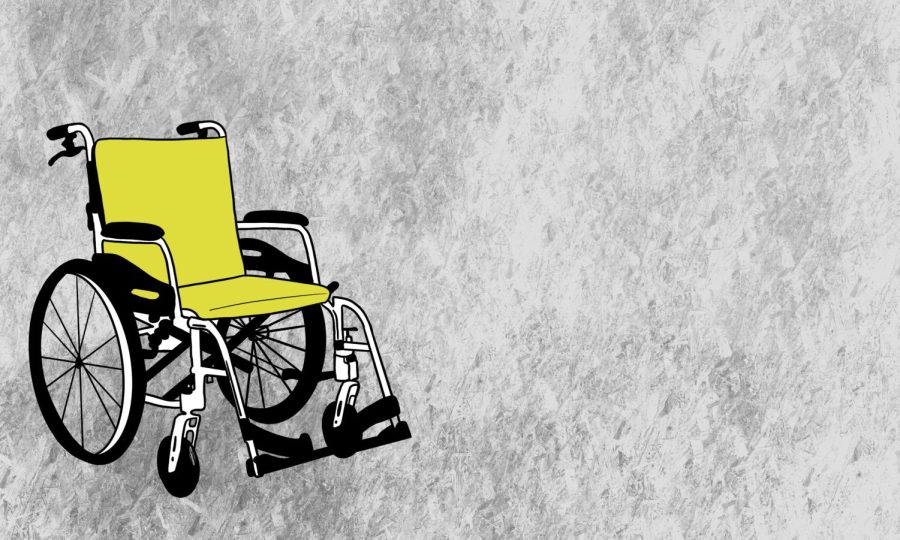Disability justice activists demand more accessible emergency transportation in Chicago area
Local disability justice organization Access Living is pushing the Chicago Fire Department to make emergency services more accessible to people who use motorized wheelchairs.
October 18, 2022
For local disability rights activist Michael Grice, having his motorized wheelchair with him is essential. His ability to move freely determines his independence.
Because ambulance vehicles lack the space to carry assistive devices such as wheelchairs, walkers and speech boxes for patients with disabilities, many people who are taken to the hospital are forced to leave their wheelchairs behind.
Motorized wheelchairs are especially difficult to transport due to their large size and weight. But some people, like Grice, who only has use of one of his arms, can’t use the manual wheelchairs provided at hospitals.
Grice, who lives in Oak Park, said he is separated from his motorized wheelchair in emergency situations about two to three times a year, and is left immobile as a result.
“We’re stuck,” Grice said. “That’s not just a problem for me, it’s a problem for my friends and other colleagues … There’s no way to get (my wheelchair) into the ambulance … It’s very discouraging.”
Depending on the location of the health emergency, mobility devices could be left anywhere from patients’ residences to the side of the street. Patients with disabilities must coordinate with friends and family to keep track of their mobility devices.
Grice is working with the local disability rights organization Access Living to address these concerns in Chicago through an effort called the Emergency Services Campaign.
After months of communication with the Chicago Office of Public Safety Administration, the office told Access Living Monday that the city will allocate money to address this issue, according to Access Living organizer Ryan McGraw. It is now up to the Chicago Fire Department to decide how to proceed with these funds, which are still unspecified.
“It was great to hear, but we have to stay vigilant to make sure they do as they say,” McGraw said.
In the coming months, McGraw said members of the Emergency Services Campaign plan to contact Chicago alderpeople and discuss creating a local law that would force the city to address this issue.
In 2019, Salt Lake City bought two wheelchair lift trailers for the fire department to hitch onto SUVs. The Emergency Services Campaign is hoping for something similar in the Chicago area.
These trailers each cost about $500, McGraw said. One design option would be for Chicago to purchase a wheelchair lift trailer for each of the five fire districts in the city.
Evanston Fire Department deputy chief Bill Muno said he has witnessed the separation of people from their wheelchairs “quite often” during his 35 years working for the fire department. He said this generally happens at patients’ residences.
The few times a patient has been separated from their motorized wheelchair on the street, Muno said Evanston firefighters have secured it onto the back of a fire engine to transport it back to the patient’s residence, or worked with a towing business to help with this transport.
“But if there’s a municipality or city that has a lot of that happening, especially the size of Chicago, I think it definitely has its place if they have the resources to accommodate it,” Muno said.
Muno said it would also be possible to create a partnership between the fire department and a third-party paratransit vehicle service. The service could be called to collect or transport mobility devices when necessary.
No matter the solution, Grice emphasized the need for those with disabilities to have a voice in the design process, and for firefighters to receive official training on how to safely handle motorized wheelchairs.
“What the city needs to do is involve people with disabilities and seniors in the design part of the vehicles,” Grice said. “People with disabilities and seniors need to be directly involved in that process.”
Email: zellamilfred2025@u.northwestern.edu
Twitter: @ZMilfred
Related Stories:
— Sami Schalk speaks on Black disability politics and the National Black Women’s Health Project
— Human Services Committee to recommend an alternative emergency response pilot in 2021 budget
— Community members reflect on ways accessibility impacts homeless services



